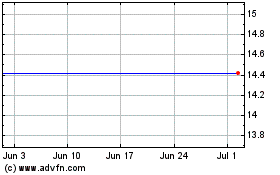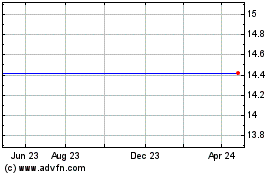By Ann M. Simmons and Thomas Grove
MOSCOW -- The increasing political and economic isolation of
Belarusian President Alexander Lukashenko is pushing the
beleaguered leader closer to Russia, providing an opening for
Russian President Vladimir Putin to advance long-held plans to
deepen the integration between Russia and the former Soviet
republic.
European Union leaders have agreed to impose a new round of
sanctions against Belarus and ban its airlines from entering the
bloc's airspace and airports as punishment for forcing an Irish
commercial airliner carrying a dissident journalist to land and
then arresting him. The impending sanctions could target financial
transactions and the country's key industries such as oil and
potash, a pillar of Belarus's economy and a major source of taxes
and foreign currency, EU officials said this week.
Mr. Lukashenko's gambit with Ryanair Flight 4978 may have
delivered him the prize he sought when he arrested Roman
Protasevich, a journalist who helped broadcast massive
antigovernment protests last year. But the move, the latest in a
series of transgressions by the Belarusian leader, gives the
Kremlin an opportunity to take advantage of Mr. Lukashenko's
increasingly vulnerable position.
"Every new step toward isolation of Lukashenko by the West
inevitably increases his dependency on Putin," said Artyom
Shraibman, founder of Minsk-based political consulting firm Sense
Analytics.
Messrs. Putin and Lukashenko were scheduled to meet in the
Russian port city of Sochi on Friday, where discussions were
expected to focus on the development of bilateral ties and
promoting integration, among other topics, according to details
published by the Kremlin.
As Mr. Lukashenko increasingly becomes an international pariah,
Mr. Putin has in recent months pledged more financial and military
support for Belarus, signaling Moscow's intention to bolster its
embattled junior partner -- support that could ultimately bind
Minsk more tightly to Russia.
"Putin probably sees it as a way to press Lukashenko to make
more concessions in the integration bargaining," said Eugene Rumer,
the director of Carnegie's Russia and Eurasia Program.
For years, Mr. Putin has been trying to coax Belarus to join
Russia as part of a larger, unified state, as they were during the
Soviet era. But Mr. Lukashenko has largely rejected that, wary of
risking his country's sovereignty.
The fallout surrounding the Belarusian leader's decision to
ground the Ryanair plane could make it harder to resist the
Kremlin's longstanding efforts to draw Belarus closer, analysts
said, as the country faces the threat of a financial chokehold from
the West.
"Russia treats economic dependence as a political tool, [this
means] political dependence, too," Mr. Shraibman said.
For years, Mr. Lukashenko, who has been in power for 26 years,
has successfully played Moscow and the West off each other, using
the EU as a hedge against the Kremlin. Since his violent crackdown
on protesters who accused him of stealing a presidential vote last
year and the political opposition who led them, his options have
shrunk.
Many see his diversion of a Ryanair plane this week as a nail in
the coffin of EU-Belarusian ties and the end of his flirtations
with the West. His decision to meet with Mr. Putin so soon
afterward is a strong statement of which camp he has joined.
"There was a time when there was an opportunity for the West to
engage with Lukashenko," said Matthew Rojansky, head of the
D.C.-based Wilson Center's Kennan Institute. "Now his dependence on
Moscow seems pretty complete."
The Kremlin saw an opportunity to press for more concessions in
economic and security integration last year when it supported him
in the midst of massive street protests. Those demonstrations were
triggered by what government opponents and Western leaders said
were fraudulent elections that Mr. Lukashenko claimed to have won.
The protests were violently put down, but raised questions for many
Belarusians about the president's legitimacy.
"Russia and Putin now see a Lukashenko that is more isolated
from his own people and more isolated from the West than
previously, so they will be looking for opportunities to what they
haven't been able to do up to now, which is to turn Belarus's
economic and financial dependence into a greater degree of
effective political control," said Nigel Gould-Davies, a former
British ambassador to Belarus. "Lukashenko has largely resisted
that."
Last year, Mr. Putin agreed to provide Belarus with a state loan
of $1.5 billion. He assembled a law-enforcement team to help shore
up Mr. Lukashenko if protests against him spiral out of control and
said the two countries would conduct joint military events almost
monthly for a year.
At the time, Mr. Putin congratulated the Belarusian leader on
his victory in the August presidential vote. He later warned
European leaders against interfering in Belarus as protests
engulfed the country demanding that Mr. Lukashenko step down.
Earlier this year, Russia and Belarus agreed to establish joint
training centers in each nation for paratroopers and air-defense
troops, Belarus's Defense Ministry said.
The two countries will hold joint military exercises later this
year with thousands of Russian troops in Belarus. Some analysts see
those exercises as Moscow's way of boosting its influence over
Belarus and flexing Russia's military muscle on the eastern flank
of the North Atlantic Treaty Organization.
"Lukashenko, for all his peculiarities, is still a person who is
perceived as an enemy of the collective West, an enemy of NATO, and
who will not allow the alliance to move closer to Russia at the
expense of Belarus," said Stanislav Byshok, a political scientist
at the CIS-Europe Monitoring Organization, an international think
tank in Moscow.
And this is one reason why the Kremlin continues to throw its
support behind Mr. Lukashenko, despite the fact that "the attitude
towards him is far from being rosy here in Russia," Mr. Byshok
said.
--Valentina Ochirova contributed to this article.
Write to Ann M. Simmons at ann.simmons@wsj.com and Thomas Grove
at thomas.grove@wsj.com
(END) Dow Jones Newswires
May 28, 2021 05:44 ET (09:44 GMT)
Copyright (c) 2021 Dow Jones & Company, Inc.
Ryanair (LSE:RYA)
Historical Stock Chart
From Mar 2024 to Apr 2024

Ryanair (LSE:RYA)
Historical Stock Chart
From Apr 2023 to Apr 2024
